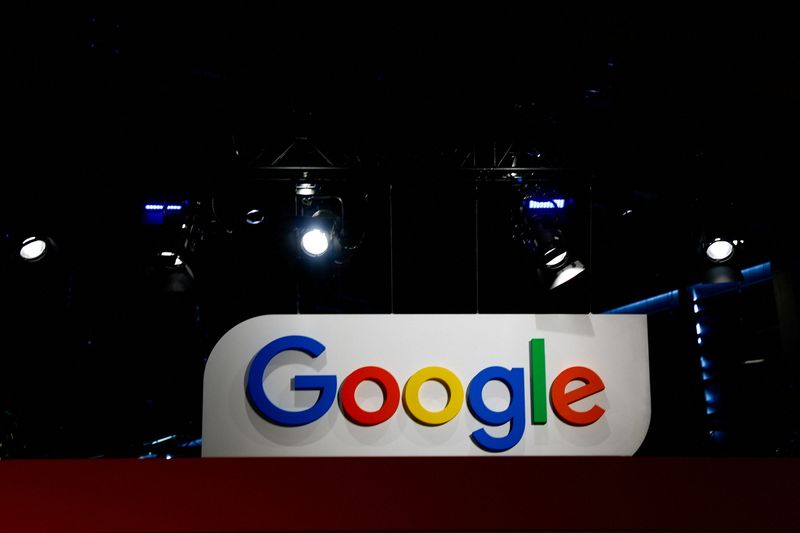By Katie Paul
NEW YORK (Reuters) - Alphabet (NASDAQ:GOOGL)'s Google and augmented reality startup Magic Leap are forming a strategic technology partnership and working on building immersive experiences that blend the physical and digital worlds.
Magic Leap said in a blog post on Thursday that the two companies have agreed to a partnership. A Google spokesperson confirmed the agreement.
While short on details, the announcement adds to signals that Google may be plotting a return to the market for augmented and virtual reality (AR/VR) technologies that it so far has largely yielded to rivals Meta and Apple (NASDAQ:AAPL).
The partnership would combine Florida-based Magic Leap's expertise in optics and device manufacturing with Google's technology platforms, Magic Leap said.
"We've shipped a couple of different versions of augmented reality devices so far, so we're out there delivering things, and Google has a long history of platforms thinking," Magic Leap's Chief Technology Officer Julie Larson-Green told Reuters in an interview ahead of the announcement.
"So we're thinking, putting our expertise and their expertise together, there's lots of things we could end up doing," she said.
Google is an investor in Magic Leap, which is majority owned by Saudi Arabia's Public Investment Fund. The startup was an early darling in the AR headset space, but struggled to find a consumer niche and more recently started exploring arrangements to license its technology or produce components for others.
Magic Leap and Google both declined to say whether the partnership was expected to yield a consumer AR device. Google also has been collaborating with Samsung Electronics (KS:005930) since early last year to develop mixed reality technologies, which the Google spokesman said was unchanged by the deal with Magic Leap.
Larson-Green said she was especially eager to work with some of the "cool AI tie-ins" with augmented reality that Google announced at its annual developer conference earlier this month.
In a video at that event, Google showed off an AI agent called Project Astra by having someone don a glasses prototype and ask the agent questions about what that person was seeing. The agent gave answers in both audio form and as digital text overlaid on the lenses.
That functionality is similar to what Meta is planning for its Ray-Ban Meta Smart Glasses, which added an AI assistant last year and in April received a software update enabling the agent to identify objects seen by the wearer in audio form.
FIRST MOVER
If Google were to jump back into making AR glasses, it would be yet another dramatic twist in the company's on-again, off-again relationship with the technology.
Google was a first mover in what it pitched as an AR revolution more than a decade ago, when it introduced its Google Glass smart glasses. Its enthusiasm then was so great that it unveiled the device in an elaborate 2012 demo involving skydivers using the glasses to live stream a jump on to a San Francisco building.
However, consumers recoiled at the product's clunky design and privacy concerns, to the point that those who wore it were sometimes called "glassholes." Google retreated from the consumer market in 2015 and later abandoned the enterprise market as well.

Two years ago, though, the company came back with a preview of a new set of glasses that it said would display real-time translations of conversations in English, Mandarin, Spanish and American Sign Language.
The future of that project was thrown into doubt in January, when Google laid off hundreds of employees in its hardware units, including the majority of its AR team.